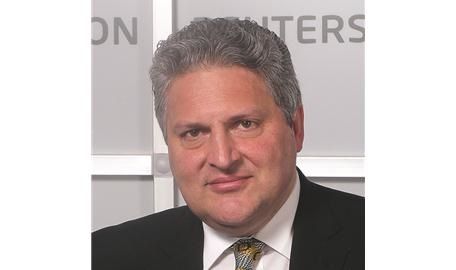NEVER A DULL moment at Morgan Stanley. Hard on the heels of news last week that Colm Kelleher had taken over as president and Greg Fleming had departed came news that co-heads of fixed-income Robert Rooney and Michael Heaney had lost control of their business.
Equity trading head Sam Kellie-Smith was given the reins of head of fixed-income and commodities; working alongside currencies boss Senad Prusac. Rooney steps into some of Kelleher’s former responsibilities as CEO of Morgan Stanley International and head of EMEA; Stanley veteran Heaney is leaving the firm. The new head of equity trading has yet to be announced.
Repairing an FICC franchise clearly isn’t easy, especially when the macro backdrop has been artificially controlled by central bank actions anchored around a hardline adherence to zero interest rates; where the market is riven by bouts of volatility and client inaction; and where regulation has moved the goalposts and the net result is you’re left with too many of the wrong people in the wrong places, too many capital-intensive products you need to get off the books and your returns are lousy.
Morgan Stanley has made tremendous progress in right-sizing its business from an RWA and headcount perspective since the financial crisis but I guess it can be in the nature of these things that progress is of the “two steps forward one step back” variety.
I haven’t really got an awful lot to say about Rooney and Heaney’s tenure as co-heads. It seemed to be going broadly in the right direction, notwithstanding volatile quarter-to-quarter results as per the rest of the Street.
Morgan Stanley has made tremendous progress in right-sizing its business from an RWA and headcount perspective but progress is of the “two steps forward one step back” variety
That said, I’m assuming that Ted Pick being promoted to oversee all sales and trading just last October followed by the rather jolting news in December that the firm was preparing to eliminate as many as a quarter of all FICC jobs was no coincidence. And a clear sign that the fixed-income duo hadn’t quite done enough.
A couple of observations here. Is the natural lifespan of the top fixed-income job at Stanley between 18 months and two years, I wonder?
Bearing in mind that Roberto Hoornweg ran what was then a newly formed combo of interest rates, credit and currencies from January 2008 but only lasted until July 2009, when Credit Suisse hotshot Jack diMaio was brought in to replace him; that Ken deRegt took over from diMaio in January 2011; and that Heaney and Rooney replaced deRegt in May 2013, it certainly looks like it.
In the grand scheme of things, it’s not a long time to turn the tanker. But then again, if you ain’t moving fast enough …
PERHAPS MORE INTERESTINGLY, in selecting Kellie-Smith as the next guy in the hot seat, is equitising FICC the answer? That seems to be in the ascendancy as a management response, just as equities as a product line is similarly in the ascendancy as FICC revenue projections continue to point south.
Kellie-Smith’s moves follow a similar pattern at Deutsche Bank, where equities man Garth Ritchie took over last year as head of global markets (of what don’t forget is a heavily FICC-oriented shop); and at Credit Suisse, where former head of equities Timothy O’Hara took over as head of global markets in October (although it’s fair to say O’Hara does have a more mixed background).
Certainly from the perspective of creating better linkages between equities and FICC, it’s a positive step. It also definitely is from the perspective of accelerating the electronification process that the bond market is struggling with at the moment and that is far more advanced in the equities space. Watch the trend gather steam.
I FELT I had to comment on Berenberg upgrading Standard Chartered to a Buy and removing the bank from its wonderfully entitled “European bank long-term loser list”. That strikes me as an early call, but Berenberg’s analysts have slapped a 12-month price target of 750p, a 50% uplift. Slightly hedging themselves, they add that current valuations of 0.55x TBV “offer enough margin of safety to invest in the new strategy despite the myriad concerns”.
In essence, Berenberg’s analysts like the fact that Bill Winters has created a core business to focus on; that there is enough capital to afford change and that new management has introduced a risk/return focus and ditched the historical focus on growth.
On the management front, it’s true that Winters has been busy. Mike Rees’s retirement will have come as no surprise but beyond that the inner circle and key management positions are taking shape. Simon Cooper, former head of global commercial banking at HSBC, is scheduled to start in April as head of corporate and institutional banking. Winters also poached Mark Smith from HSBC as Chief Risk Officer.
Elsewhere, Didier von Daeniken is joining from Barclays in the newly-created role of global head of private banking and wealth management; Rehan Shaikh has joined as CEO of the Islamic window Standard Chartered Saadiq, while Zarin Daruwala joined from ICICI as India CEO. All you need now, Bill, is for China to resume growth, global EM to fire up, fix your NPL problem, and everything will be fine. No pressure.
● Oh, and in case you were wondering what else is on Berenberg’s loser list, it’s a motley crew of: all investment banks, Commerzbank, DNB, Danske Bank, and UK, French, Spanish, Italian and Irish banks. Something for everyone.
